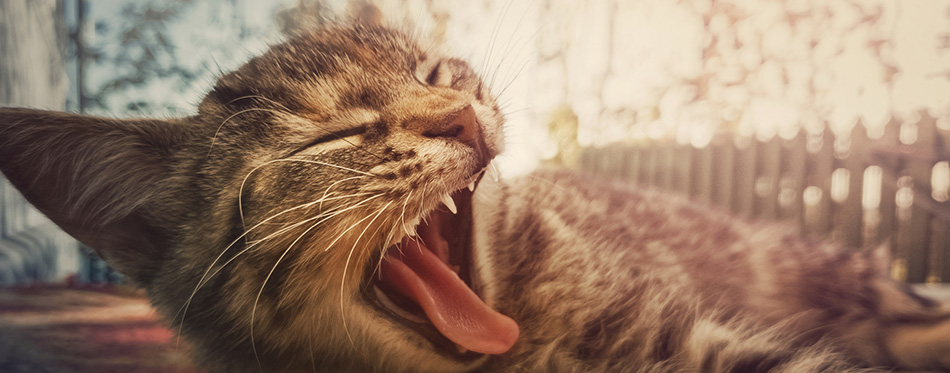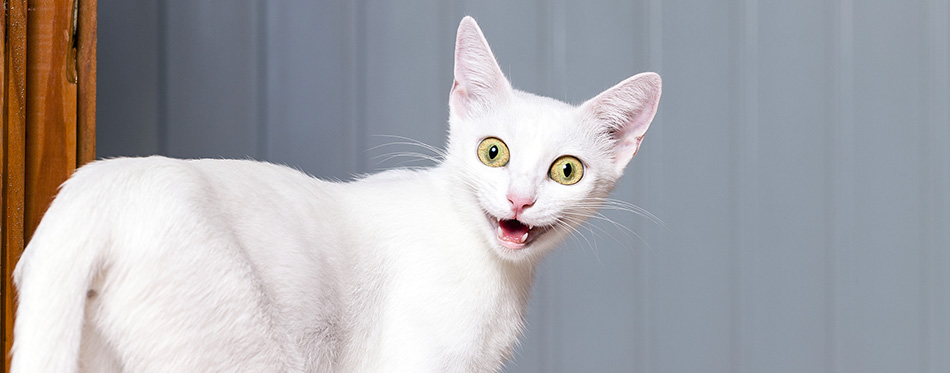There’s nothing quite like nestling up on the love seat with your sweet little cat. You get so comfortable that before you know it, you’re both yawning. However, on the off chance that you observe intently, you may find your little kitten yawning a lot, and it’s not generally on the grounds that he’s worn out.
In fact, tons of creatures yawn. People yawn; the soonest yawn frequently happens 11 weeks after origination – that is before the infant is conceived. The yawn winds up infectious some place in the initial five years of life. Chimpanzees and gorillas yawn, and they yawn irresistibly simply like us. Even fish and birds yawn.
We don’t generally know why felines yawn. Truth be told we don’t generally know why we yawn at all, in spite of the fact that there are a few speculations.

Your feline sends messages by extending and yawning. Obviously, tense felines don’t do this. Odds are, your feline feels brilliantly satisfied in the event that she tosses back her head, twists her spine, broadens her legs, and loosens up with a yawn. Give her a chance to appreciate the inclination without being moved, approached to play, or called to a dinner.
Lions and tigers and the littlest of little cats yawn and stretch to flaunt to others of their sort or to predators. Such stretches signify, “I’m so in charge here, I can unwind.”
So, why do cats yawn at us? Why do cats yawn at each other?
Though these may not be the exact reasons for their behavior (as we can’t ask the cats directly), we can guess based on what we know about ourselves as humans – here are 5 reasons why your cat seems to yawn so much:
Lacking Oxygen
Despite the fact that all land-bound warm blooded creatures yawn, science still can’t seem to demonstrate the genuine purpose for the activity. There are a few hypotheses out there, with the most mainstream being that the cerebrum powers a yawn amid times when the body has a lot of carbon dioxide and insufficient oxygen. The premise behind this hypothesis is that when we, or our felines, yawn, a huge volume of oxygen is immediately breathed in, bringing truly necessary oxygen into the body while removing a decent measure of abundant carbon dioxide.
Fighting Off Sleep
Some of the time, when your feline is drained but he wouldn’t like to sleep, he may yawn with an end goal to remain wakeful. The speedy admission of oxygen invigorates the blood stream and fights off his approaching snooze, at any rate for a brief period longer. Felines additionally yawn in the midst of contention. For instance, if there is a dish of food close-by yet a puppy is remaining over the dish, your feline may have clashing urges: One inclination to eat and the other to secure himself. For this situation he may yawn as a removal conduct.
Think about the circumstance in a natural setting: Putting on a “drowsy” show by yawning, enables the creature to get away from a hazardous circumstance smoothly, without conveying the message that he is terrified, befuddled, or in strife with others. Interestingly, on the off chance that you yawn at a feline, it discloses to him you intend no mischief.

Planning for Sleep
Despite the fact that your feline’s yawning lifts her blood stream and expands her pulse so as to keep herself from nodding off, it likewise enables her body to accomplish an increasingly loosened up state, so yawning can likewise enable your kitty to nod off when she’s prepared. You may see that occasionally a feline’s yawn is joined by kneading of the paws, which is a reasonable correspondence that she’s worn out or drowsy or both. It’s like how people yawn when feeling languid too.
Communication
In the event that your feline is yawning, he might be attempting to speak with you or different pets in the home. He might reveal to you he’s worn out or that he is exhausted or he might flag different pets in the home that he isn’t worried about them right now. A yawning feline may demonstrate a casual mind-set to different felines. Be that as it may, felines utilize their non-verbal communication all in all, and yawning alone would not tell others anything except if matched with something different. For instance, in the event that you see still photos of a feline murmuring and a feline yawning, the mouth in the two cases would appear differently. In any case, in the event that you focus on the condition of the ears and hairs, you would see that the feline who is yawning has their ears and stubbles situated sideways or marginally forward, rather than in reverse or downwards as if there should be an occurrence of a furious feline.
Oral Pain
Exorbitant yawning some of the time means mouth illnesses in felines – think cat stomatitis, for example. This condition includes aggravation of the oral district, from the mouth to the throat. At the point when felines experience inordinate mouth torment, they in some cases attempt to manage it by yawning – a great deal. With these sorts of oral conditions, moving the mouth can be baffling and awkward. A feline with a mouth issue may shout out and jump into the air each time he endeavors to open up wide and yawn – ouch. He could have sore teeth or a cut within his mouth that is making it excruciating for him to keep his mouth shut. On the off chance that you see his yawning is joined by granulating his teeth or drooling, at that point you will need to have him looked at by his veterinarian. This may be the case especially if you notice your cat keeps yawning and licking lips.
After reading through those 5 reasons, it’s obvious that the reason your cat may be yawning could be pretty much anything. It’s likely just because your cat is tired (like we are when we yawn) or has been relaxing all day, but keep an eye out based on the reasons listed above, just in case the reason is more sinister!

